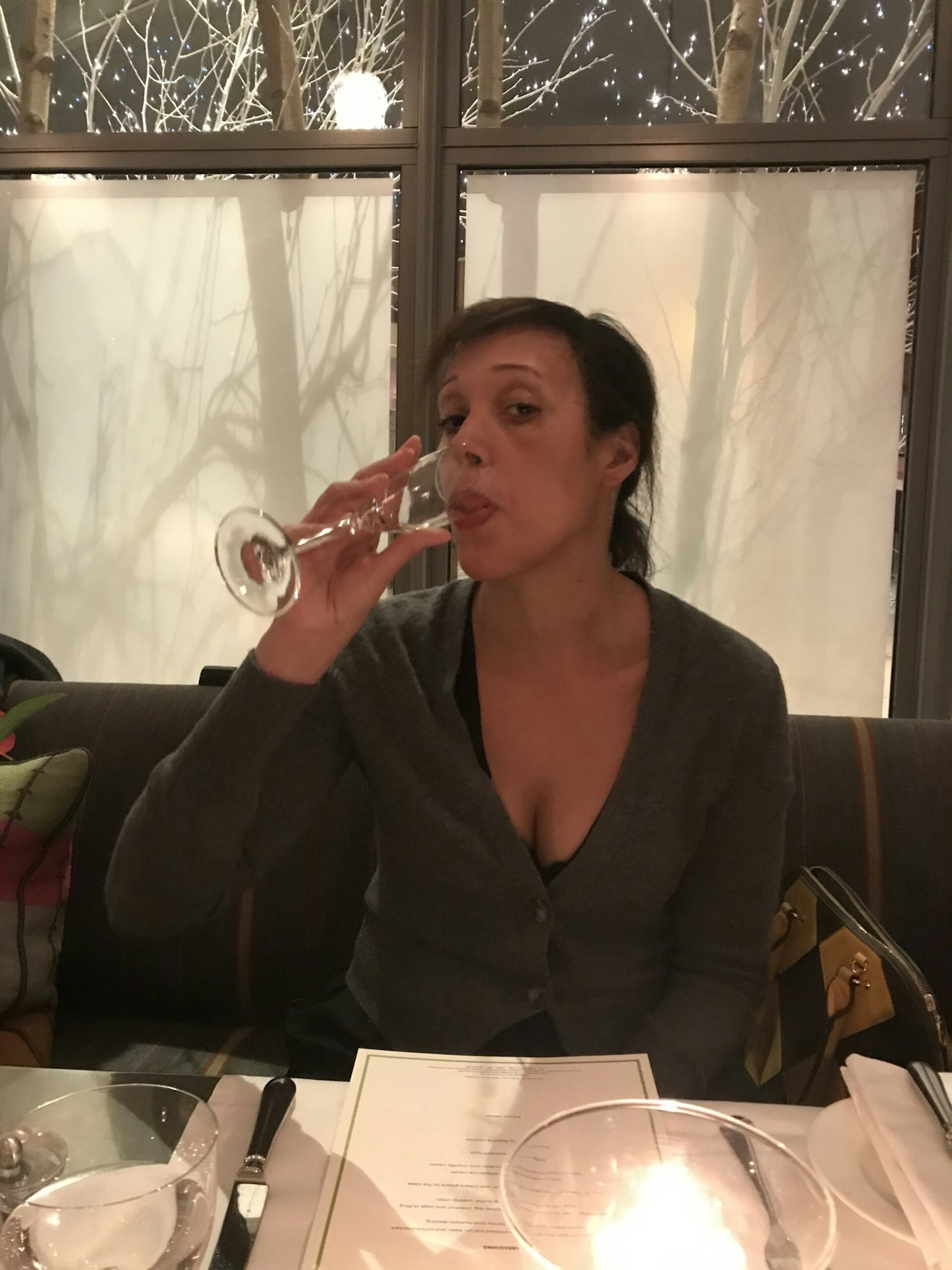‘So, what’s that, then?’, asked my latest potential boyfriend (read: Bumble hook-up). My heart sank. I had heard this so many times before. I told him that it was no big deal, that it only affected some of my external muscles. ‘My internals are fine,’ I lied (well, partially – the muscles he was concerned about are in full working order thankfully). I never heard from him again.
Let’s dial back. Ten years ago at the age of 32, I was diagnosed with Type I Myotonic Dystrophy, a genetic disorder that causes progressive muscle loss. Despite being the most common of the adult muscular dystrophies (muscle wasting disorders), it is still classified as a rare disease and most people have never heard of it.
It affects different people in different ways and progresses at different rates. In all cases it’s degenerative and currently there is no cure. However, for a lot of people, me included, it’s an ‘invisibility disability’. Let’s call it an ID for short.

Recently, there have been efforts to raise awareness about those of us who have IDs, which means that although outwardly there is no sign of disability, there may be a serious problem that’s not immediately obvious. In 2017, Transport for London introduced a card and badge scheme, encouraging passengers to give up their seats to those who appeared able-bodied, healthy looking young people. But I’ve avoided signing up for one, as I don’t define myself by my condition and don’t feel the need to advertise it. I do take full advantage of my freedom pass, taxi-card, blue-badge and free cinema tickets however, somewhat hypocritically.
Anyway, back to the date. Well, back to all the dates. At first appearance, I look fine. But then come the raised eyebrows when I ask them to open a bottle of water for me, or the embarrassed concern when I start choking during a meal. Sometimes none of those things happen, but I always ask myself, at what point should I tell him about my condition?
There are two options: ‘Don’t tell him on the first date, you’ll scare him off,’ advises friend A. ‘But what if you become serious? You’ll have to tell him eventually, and he’ll think you lied’, warns friend B.
This issue was why I initially swerved the dating apps. I convinced myself bringing it up would elicit pity, sympathetic nods, and then ghosting. Even in today’s enlightened times, there’s no sexy spin on disability.
When I decided to take the plunge, I erred on the side of caution and kept my mouth shut. However, I couldn’t help feeling I was selling myself on false advertising. Talks about the future, moving in, marriage, kids, induced pangs of guilt, as I knew those things would never happen, at least not in the way they think.
Yes, we could move in together and get married. But evenings of sex would eventually give way to him becoming my carer and helping me to the toilet. And who wants to hear that on a date? But not mentioning it didn’t sit well with me – did omitting to say anything make me a catfish?
So, I started mentioning it casually, but downplaying it as a mild condition (‘it’s just like hay fever! It’s not even that bad’), even though I knew as soon as the date was over, they would go home and look it up online. I asked myself if the situation was reversed, would I do the same? It’s easy to say I’d be understanding, but would I? I’m not so sure.

Eventually, after realising that I can’t be the only one, I asked other young women with IDs to see how they dealt with it. I met Lauren* in an outpatient waiting room. A Californian, she was very open about her condition, which caused her to have frequent epileptic seizures. ‘Living alone, I wear a device that directly connects to the emergency services, in case I have a massive seizure. I have to tell guys about it, given that one time a bunch of paramedics burst in when my date was going down on me’.
Another time, when I was editing a book on people living with neuromuscular disease, one of the contributors described how she let her boyfriend know. After being together for six months, she wrote him a letter detailing her condition, explaining the reasons she never told him before. They married soon after, which provided a much-needed glimmer of hope for me.
IDs aren’t always physical conditions. Those with mental health issues, or who are neurodivergent, can be classified as disabled, and disclosing this early in a relationship can be difficult. However, while there are dating apps for people with mental health issues, neuro-divergency and disabilities, nothing exists for those with an ID.
There is also the assumption on these apps that you only want to date someone else who has something in common with you, which in these cases would be a disability. My initial instinct is that dating someone else who needs as much help as I do could be problematic, both practicality and psychologically. Nonetheless, I recently saw a young lesbian couple, both in wheelchairs, and it seemed to be working out well for them.
In the end, I decided to ask my latest ex-date whether it was my revelation about my condition that cast a pall over our budding romance, and if so, when would be the best time to disclose it. He suggested waiting to see if things are going to develop into something serious, because by then you’d probably have a pretty good idea of how they’d react. Oh, and apparently my ID had nothing to do with him cooling off. It was because I talked about myself the entire time…
